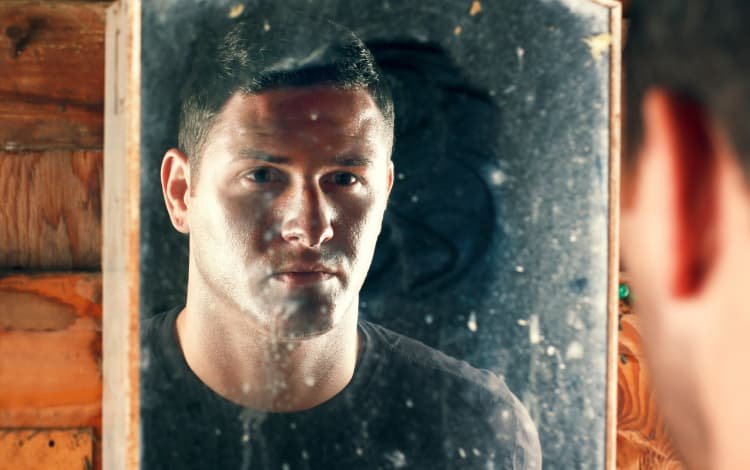Unraveling the Mystery: Why Do Gay Men Cheat
Gay therapist Gino Cosme explores trust, betrayal, and healing in gay relationships.
Whether you've experienced betrayal or want to strengthen your bond, learn to navigate infidelity in gay relationships.
Infidelity can undermine the foundation of any gay relationship.
Discovering your partner’s infidelity often elicits intense emotions like anger, sadness, confusion, and grief. For gay couples, an affair may also bring up insecurities tied to societal prejudice and internalized homophobia.
If you recently experienced cheating in your relationship with another man, you likely have many questions about how and why it occurred.
This guide covers common causes of infidelity among gay men and offers healing guidance after an affair.
Why Does Cheating Happen in Gay Relationships?
People in all types of relationships - straight, gay, or otherwise - can be unfaithful for many reasons, including the risk of reaching out to someone directly:
Dissatisfaction with the relationship
Unfulfilled desires
Personality factors such as impulsiveness
Poor communication
Lack of commitment
Among gay couples, unique pressures surrounding paternity can lead to infidelity.
For example:
Discrimination, family rejection, or internalized homophobia may harm self-esteem or lead to mental health issues like depression or anxiety, increasing vulnerability to infidelity.
For men who grew up unable to express their sexuality, the appeal of gay dating apps and expanded romantic prospects may be hard to resist.
These factors don’t excuse cheating.
Understanding motivations can help couples determine if their relationship can be repaired after an affair.
Understanding Why Infidelity Occurs
Infidelity can feel like a betrayal that disrupts a relationship, leaving partners dealing with confusion and hurt.
For many gay men, infidelity may stem from underlying issues like internalized homophobia, unmet emotional needs, or poor communication.
Recognizing these factors can explain the reasons behind a partner's betrayal.
Many individuals might excuse their actions as a response to external pressures or personal insecurities.
These excuses don’t reduce the pain caused to their partners.
Understanding the root causes of infidelity from the survey results can lead to healing and deeper conversations about monogamy, desires, and needs in the relationship.
Tips for the Unfaithful Partner
If you've cheated, approach the situation with honesty and accountability.
Many gay couples face fidelity challenges, and addressing these issues directly is essential for healing.
Recognize the impact of your actions, and be open to discussing why you sought intimacy outside the relationship.
This involves acknowledging your mistakes, showing genuine remorse, and committing to improvement.
Engage in meaningful conversations with your partner about your needs and the issues that may have contributed to your infidelity.
You can rebuild trust and create a healthier dynamic by focusing on health equality and mutual respect.
Counseling can provide important support, helping both partners heal and grow together.
Signs Your Partner May Be Having an Affair?
While there's no definitive proof, certain red flags could indicate a gay partner's infidelity. Watch for subtle changes:
Communication: Growing distant, less willingness to discuss the relationship, defensiveness.
Routine: His life has shifted significantly during this time, marking a new chapter. More frequent "late nights at the office," business trips, boys' nights out.
Appearance: Dressing better, grooming, and managing weight.
Sex: Less interest in intimacy, rejection of your advances.
Technology: Increased texting, hookup apps, hiding phones and devices from you.
None of these signs guarantee cheating. However, multiple behavioral changes could suggest an underlying issue.
Coping After Discovering an Affair.
Learning of a partner's infidelity often sparks an emotional upheaval of anger, sadness, confusion, and loneliness.
You may alternate between wanting to salvage the relationship and wishing to never see your ex again, especially after conversations revealing the betrayal.
During this challenging time, be patient with yourself and allow space to process it. Consider these self-care tips:
Connect with supportive friends and family: While keeping privacy, open up to loved ones for reassurance and share sensitive information only on official, secure websites like HTTPS.
Consider counseling: An LGBTQ-affirming gay therapist can help address trauma.
Practice self-compassion: This wasn’t your fault. Affairs often result from factors.
Avoid rebound relationships: Give yourself time to heal before pursuing someone new.
Communicate with your partner: If reconciling, honest talks are essential for rebuilding trust.
Many couples emerge from affairs with stronger bonds, while challenging. You can overcome infidelity with time, support, and rebuilding trust.
Guidance for the Betrayed Partner
Discovering an affair is a significant issue for gay men, leading to feelings of betrayal and loss.
In a heterosexual society that stigmatizes infidelity, the emotional fallout can be especially challenging.
The betrayed partner must feel the full spectrum of emotions, from anger to sadness, without judgment.
Engaging with a rights organization or counselor who understands the gay community’s struggles can provide importantsupport.
It is important to prioritize self-care and seek trusted friends or support groups.
If you choose to reconcile, establish boundaries and communicate your needs with your partner in navigating this journey.
Healing takes time, and you deserve support as you process your emotions and consider your relationship’s future.
Should You Stay or Leave?
Deciding whether to stay with your partner is a personal choice with no definitive answers. Important questions to ask yourself and your partner include:
Why did the infidelity happen? Was your relationship facing difficulties?
How long did the affair last? Was it a single mistake or ongoing deception?
Is your partner genuinely remorseful and committed to regaining your trust?
Can we have open, non-defensive discussions about what happened?
Are you both willing to get counseling or take steps to improve our relationship?
Examining the context around the affair instead of making a hasty, emotional decision can provide insight.
While some can’t overcome the pain of betrayal, others progress significantly through counseling and complete transparency between partners.
Preventing Infidelity in Future Relationships
If you decide to move forward from the relationship damaged by cheating, the experience can teach you lessons that improve your next romantic union.
Actions to build a secure partnership include:
Maintaining open and consistent communication
Voicing your needs and listening to your partner's
Setting boundaries and realistic expectations
Prioritizing meaningful time together
Attending LGBTQ couples counseling before major issues arise
Addressing problems directly instead of letting resentment build is essential. The more comfortable you and your partner feel sharing vulnerabilities, trauma triggers, and relationship wants, the lower the chances of seeking intimacy outside the relationship.
Healing from affairs takes time, but many gay couples emerge stronger. Seeking support and communicating openly are important. You deserve a healthy relationship free from deception.
Consider Gay Couples Counseling.
Couples therapy can help clarify your relationship’s direction.
Provide a space for open dialogue and support to express your emotions and needs.
Help with practical issues, like finding common ground on important matters or addressing feelings of hurt and resentment.
Before scheduling an appointment, discuss couples counseling with your partner. Counseling only works if both partners are committed.
Individual Counseling After a Gay Affair
Affairs can be traumatic, especially if one has experienced betrayal.
It's important to grieve and process your emotions while focusing on moving forward and healing. Seeking therapy can help:
Processing emotions like rage, grief, confusion, and sadness.
Understanding it wasn't your fault, and learning not to internalize blame or shame.
Deciding whether to rebuild trust or end the relationship.
Learning to express your needs, build intimacy, and prevent future affairs.
Rebuilding your self-esteem and nurturing your self-worth
Turn this betrayal of infidelity into a chance for growth and empowerment for future relationships.
Infidelity hurts. Let’s navigate the healing path together.
Process your emotions, such as anger, betrayal, sadness, and confusion
Learn to manage your pain, stress, and anxiety
Rebuild your self-esteem and self-worth
Gain an unbiased perspective on your situation
Recognize and change unhealthy patterns






